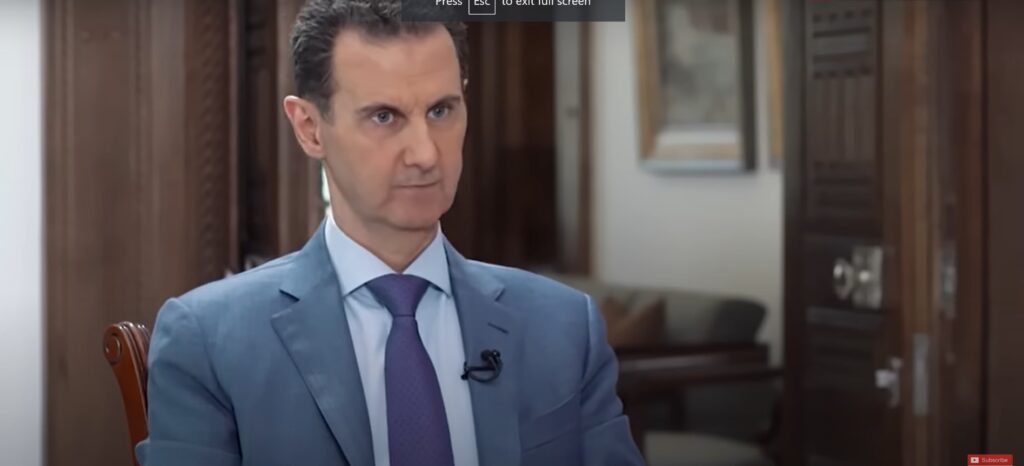Last October, a Hamas delegation led by Khalil Al-Chaya, responsible for relations with the Arab and Islamic world, visited Damascus along with several Palestinian faction delegations, staying in President Bashar Assad’s palace.
Al-Chaya hailed this as a “historic visit” and praised Syria’s support for the Palestinian cause.
In the early stages of Syria’s 2012 crisis, during the “Arab Spring,” Hamas initially supported the overthrow of Bashar Assad’s regime.
However, it later adopted a neutral stance and eventually returned to fully support the Syrian government while condemning Israeli attacks in Syria.
The “Muslim Brotherhood,” to which Hamas belongs, opposed reconciling with Bashar Assad’s regime and attempted to dissuade Hamas leader Ismail Haniyeh from such a move. Haniyeh, however, rejected this advice.
Although Hamas sources claimed positive outcomes from the meeting with President Assad, a recent interview painted a different picture.
In an August 9th interview with Sky News Arabia, President Assad strongly criticized Hamas leadership, specifically Ismail Haniyeh and Khaled Mashaal, accusing them of “treason and hypocrisy.”
President Assad asserted that Hamas leaders falsely portrayed Syria as requesting their support in the civil war.
He questioned, “How can they stand by us with only a handful of operatives in Syria?
They lack an army,” emphasizing that Syria’s current relation with Hamas is based on supporting any Palestinian entity opposing Israel to reclaim their rights.
He made it clear that Syria’s ties with Hamas will not revert to the past, stating, “They currently do not maintain offices in Syria. It’s premature to discuss this. Our primary concern is the battles within Syria.”
Hamas’s delegation visit to Syria in last October marked the end of a decade-long rupture initiated by Khaled Mashal’s decision to sever ties with Assad’s regime and relocate the Hamas headquarters from Damascus to Qatar’s Doha, protesting against Assad’s actions during the “Arab Spring.”
Despite official reconciliation, President Assad exhibits caution and prevents Hamas from re-establishing a presence in Syria as before.
For years, he held a grudge against Hamas leadership for perceived betrayal, rejecting all reconciliation overtures since Ismail Haniyeh succeeded Khaled Mashal.
Iran and Hezbollah exerted significant pressure on President Assad, eventually leading to his acceptance of giving Hamas another opportunity.
Hamas presents substantial demands to the Syrian regime.
Senior officials in Hamas’s military wing seek more than just reopening movement offices—they desire military freedom and approval to establish a missile-equipped infrastructure in Syria for potential attacks on Israel.
President Assad, however, proceeds with caution, possibly fearing that Hamas’s actions could escalate tensions with Israel.
The reconciliation between Hamas and Syria’s regime doesn’t bode well for Israel.
It strengthens the “axis of evil,” led by Iran, which opposes any political settlement with Israel and supports armed struggle, aiming for Israel’s destruction and the establishment of a Palestinian state in its place.
President Assad, having experienced what he views as Hamas’s betrayal and manipulation, remains skeptical and slow to change his stance.
The ongoing divide between him and Hamas leadership currently aligns with Israel’s interests.




